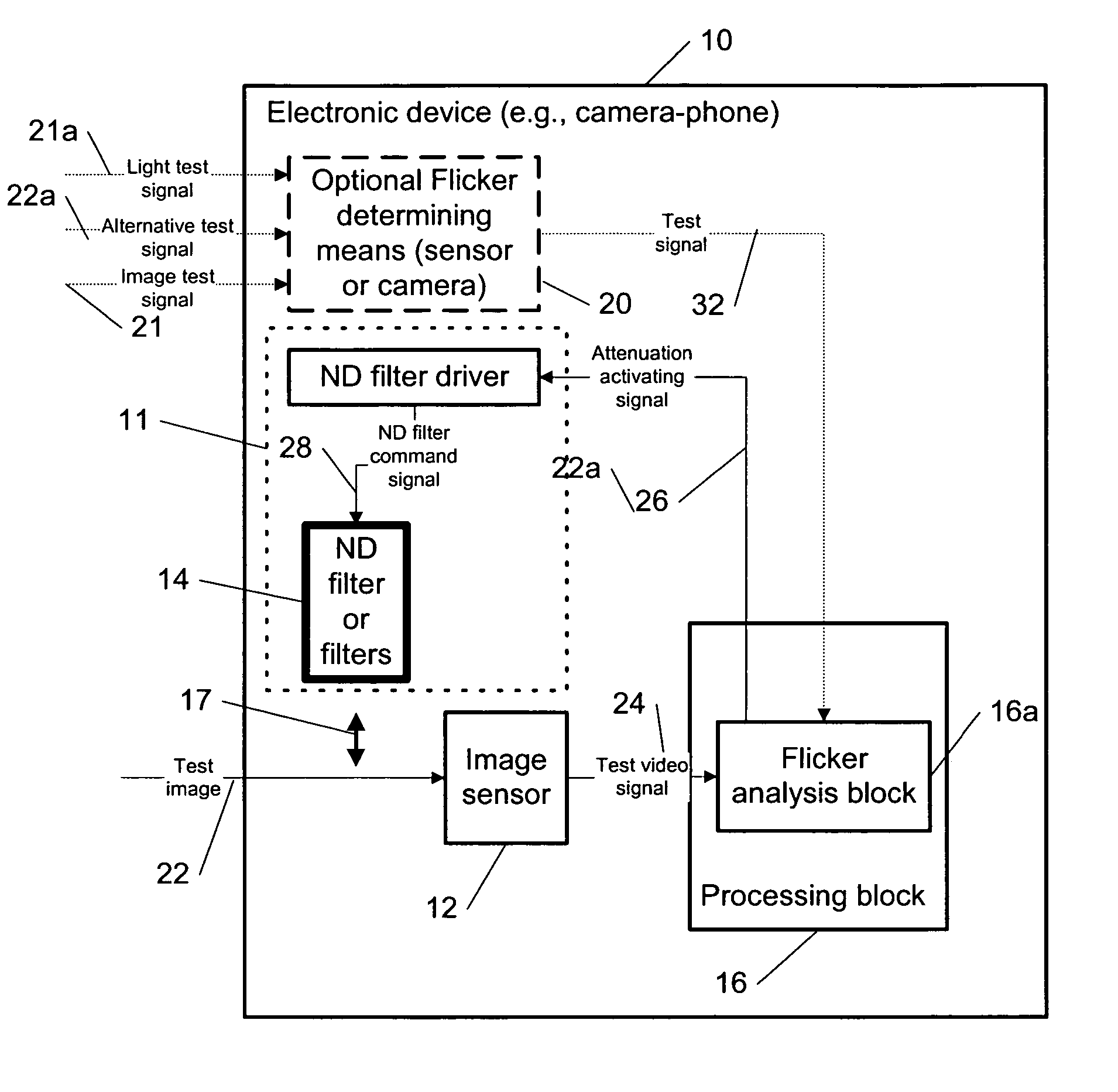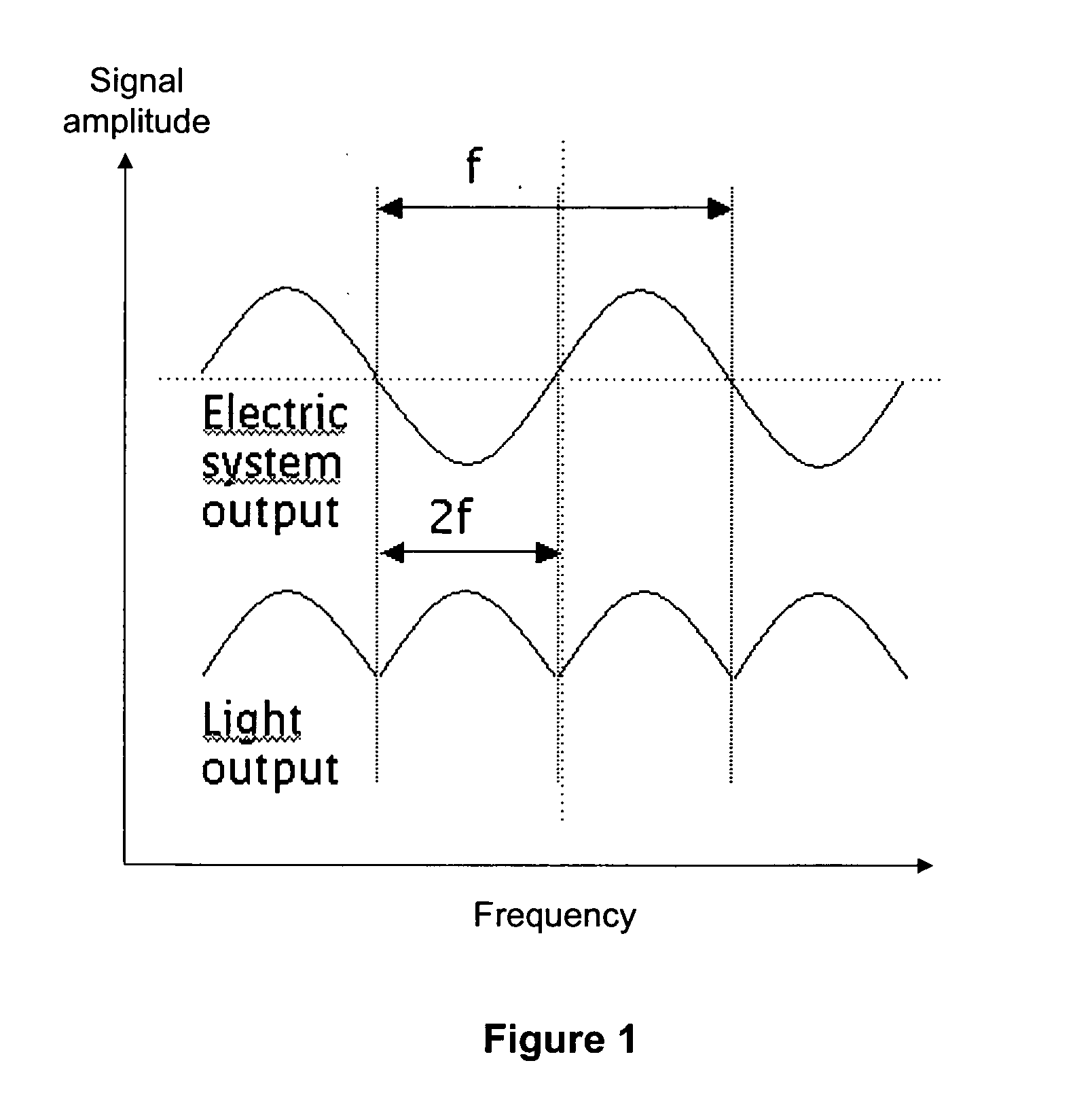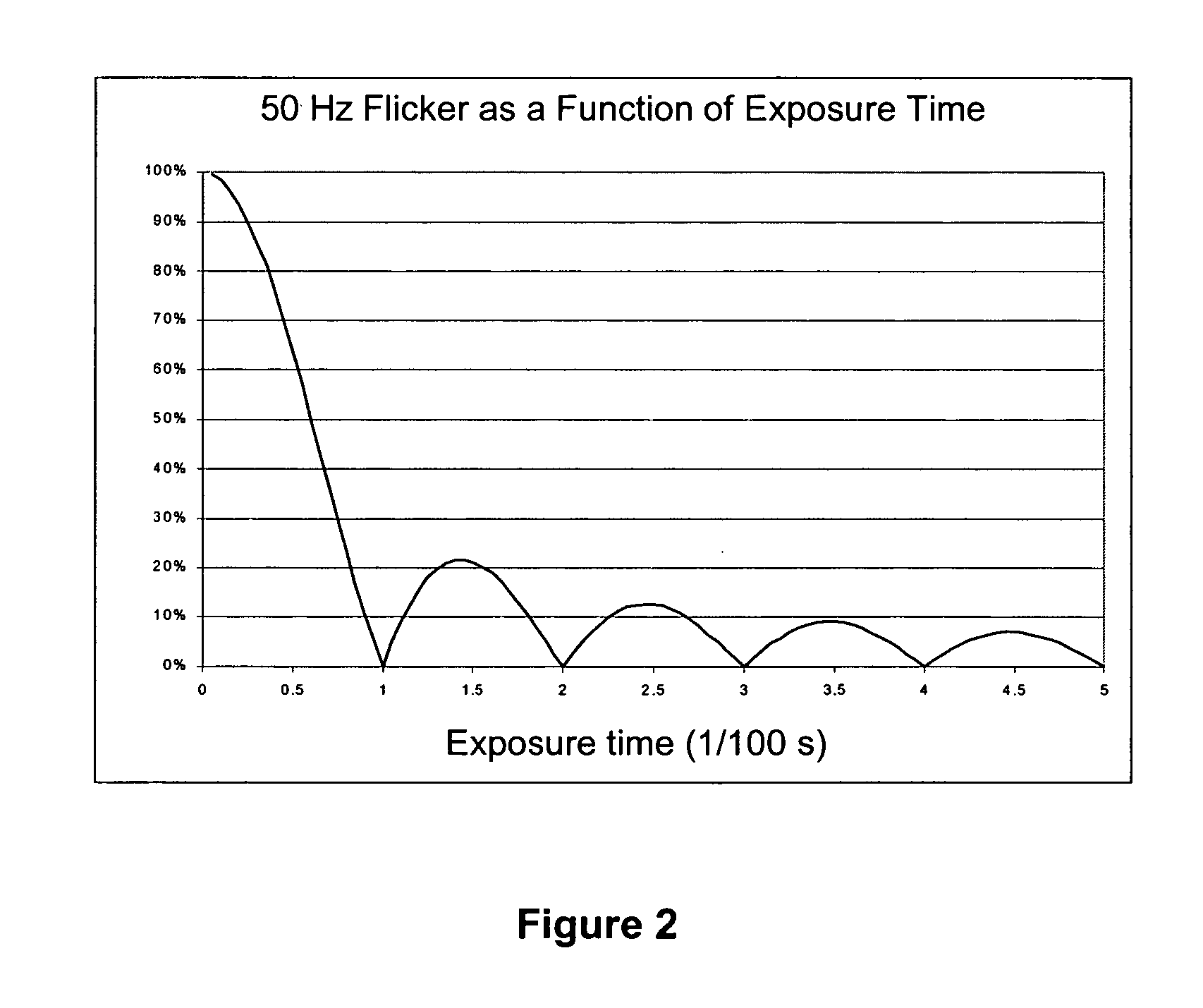Preventing flicker effects in video electronic devices
a technology of electronic devices and video cameras, applied in the direction of signal generators with optical-mechanical scanning, television systems, color signal processing circuits, etc., can solve the problems of certain limitations of using this method and certain weak points of digital cameras under artificial lighting conditions, and achieve the effect of preventing flickering effects
- Summary
- Abstract
- Description
- Claims
- Application Information
AI Technical Summary
Benefits of technology
Problems solved by technology
Method used
Image
Examples
Embodiment Construction
[0034] A new method, apparatus and software product are presented for reducing flicker effects in electronic devices (e.g., a video camera, a digital camera, a digital video camera, a camera-phone mobile device, a wireless communication device, a portable electronic device, etc.) by reducing an optical intensity of a video image received by the electronic device.
[0035] According to an embodiment of the present invention, it is determined by the electronic device whether a flicker light source is present and predetermined conditions (e.g., related to a light level, to a shortest exposure time, etc.), as described below in detail, are met. If the flicker light source is present and the predetermined conditions are met, then an optical attenuation of a video image taken by the electronic device is provided (e.g., by an optical intensity reducing block) using a predetermined criterion and a video signal of the video image is generated by the electronic device using an exposure time sub...
PUM
 Login to View More
Login to View More Abstract
Description
Claims
Application Information
 Login to View More
Login to View More - R&D
- Intellectual Property
- Life Sciences
- Materials
- Tech Scout
- Unparalleled Data Quality
- Higher Quality Content
- 60% Fewer Hallucinations
Browse by: Latest US Patents, China's latest patents, Technical Efficacy Thesaurus, Application Domain, Technology Topic, Popular Technical Reports.
© 2025 PatSnap. All rights reserved.Legal|Privacy policy|Modern Slavery Act Transparency Statement|Sitemap|About US| Contact US: help@patsnap.com



